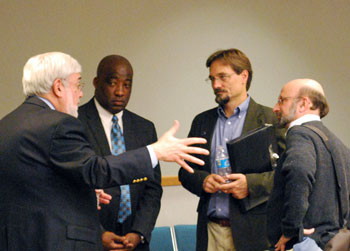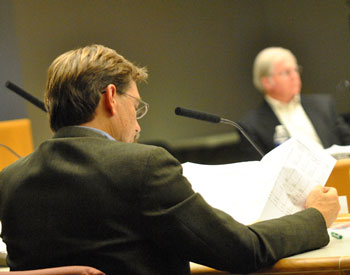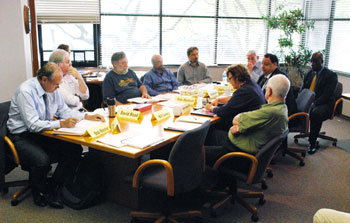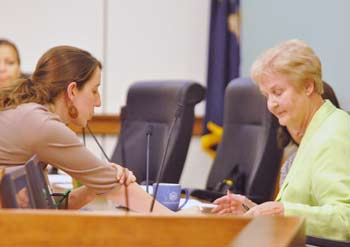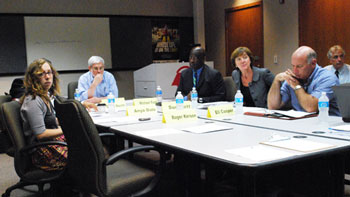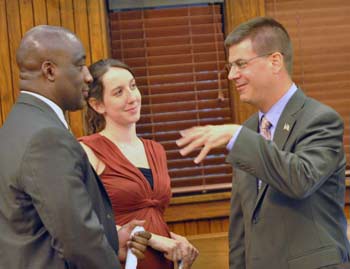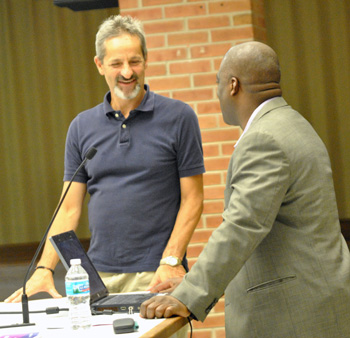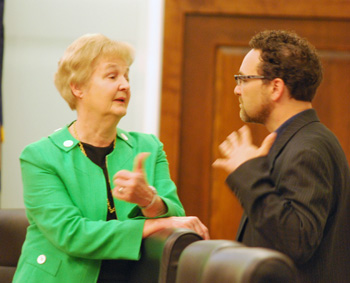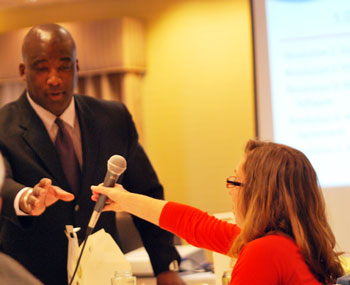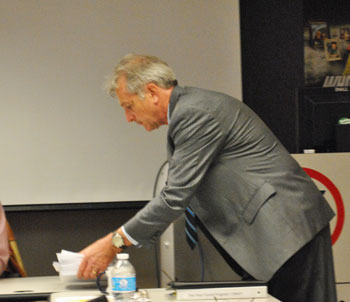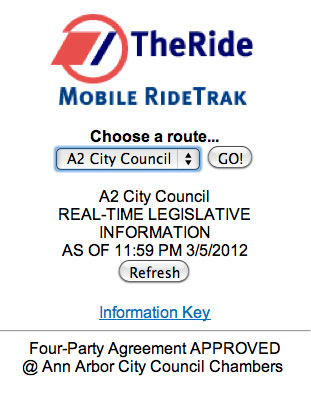County Debates Expanded Road Commission
Washtenaw County board of commissioners working session (May 8, 2014): Washtenaw County commissioners tackled the topic of possibly expanding the road commission board, but reached no consensus at their most recent working session.
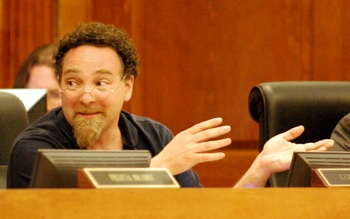
Conan Smith (D-District 9) advocated for expanding the road commission board from three members to five. (Photos by the writer.)
The road commission board is a three-member entity, and is run independently from county operations. The county board, an elected body that appoints the road commissioners, is enabled under state law to expand the road commission board to five members. The possibility of expansion has been discussed periodically for years, but was always met with resistance – most notably from some of the road commissioners themselves.
Although there have been tensions in the past, several county commissioners commented on the current positive relationship between the county and the road commission, and noted that two of the three road commissioners – Barb Fuller and Bill McFarlane – are new. The third road commissioner, Doug Fuller, has served in that role since 2008, and is the current chair. [Barb and Doug Fuller are not related.]
Commissioners who argued against expansion at this time cited the need for the relatively new road commission board to gain more experience before any changes are made.
Arguing in favor of expansion, Conan Smith (D-District 9) scoffed at the idea that the road commission was “some magical institution that needs special treatment.” The only result of leaving the road commission board at three members instead of five is that it will consolidate political power among the three current road commissioners, he said. “Those people who are there longer get to build stronger relationships, get deeper knowledge, and they have that ability then to leverage that knowledge and political authority to their own ends.” Adding two more road commissioners will bring more diversity to the governance of that organization, he argued, saying it’s something that should have been done years ago.
Smith said it’s crucial to bring more voices to bear on one of the most contentious, critical issues that the county will face in a long time – the management of the local transportation network. Over the past decade, he said, the people who’ve served as road commissioners haven’t “had the wherewithal to tackle this issue in a way that presents a comprehensive solution.” Given the changing nature of transportation, the economy and economic development, the most important thing that’s needed is a greater diversity of voices at the table, Smith concluded.
Smith, Yousef Rabhi (D-District 8) and Felicia Brabec (D-District 4) indicated that they support expansion. Dan Smith (R-District 2) and Alicia Ping (R-District 3) were inclined to keep a three-member road commission board at this time, while two other commissioners – Kent Martinez-Kratz (D-District 1) and Andy LaBarre (D-District 7) – seemed on the fence, or leaning toward picking up the issue at a later date. Commissioners Ronnie Peterson (D-District 6) and Rolland Sizemore Jr. (D-District 5) did not attend the May 8 working session.
The meeting was attended by one of the three current road commissioners, Barb Fuller. She did not formally address the board.
The issue of possible expansion comes in the broader context of discussions about whether to change the structure of the road commission – by absorbing the commission into county operations. At their Oct. 2, 2013 meeting, county commissioners created a seven-member subcommittee to “explore partnerships and organizational interactions with the Washtenaw County Road Commission.” The subcommittee made recommendations to the board earlier this year that called for leaving the road commission as an independent entity. The subcommittee did not make a recommendation about expanding the road commission from three to five members, calling it a political decision that the county commissioners should make.
The board accepted the subcommittee’s recommendations at their May 7, 2014 meeting, but have not yet made a decision about expansion.
Following the working session discussion, it’s still unclear what action, if any, will be taken regarding the possible expansion of the road commission board. Any of the county commissioners have the option of bringing forward a resolution on the issue. [Full Story]




